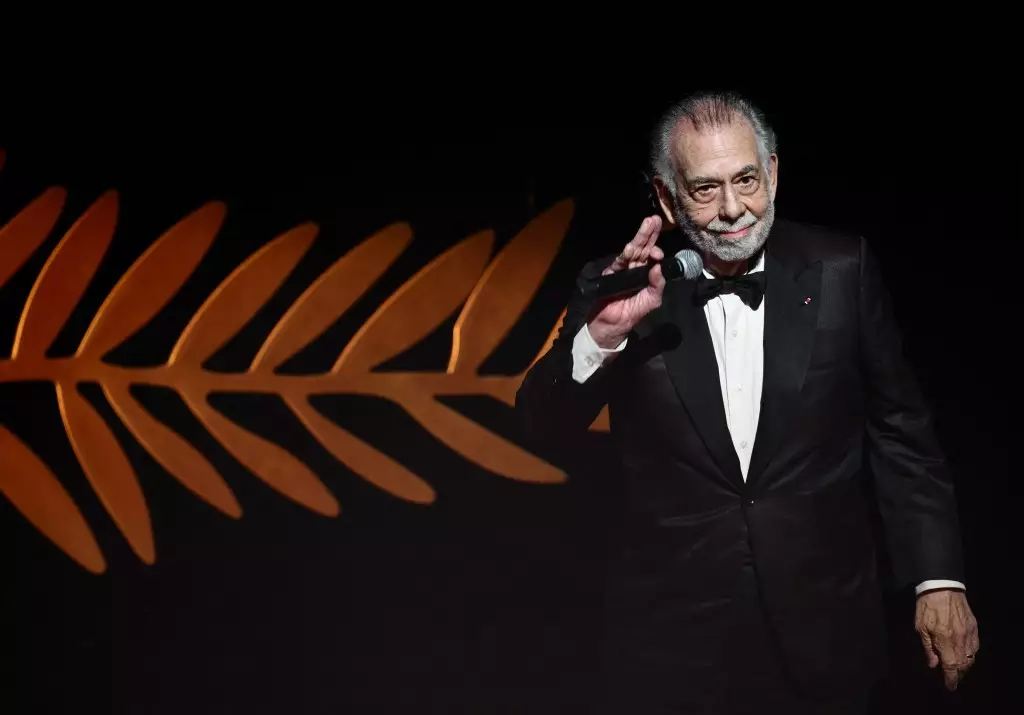Filmmaker Francis Ford Coppola’s upcoming epic, Megalopolis, has stirred up controversy even before its release date. One of the most significant controversies surrounding the film is Coppola’s deliberate decision to cast actors who have been “canceled” in the past. The director made it clear that he did not want his film to be labeled as just another “woke Hollywood production.” Coppola expressed his desire to spark important conversations through Megalopolis, rather than simply lecturing viewers on certain ideologies. The casting of actors such as Shia LaBeouf, Jon Voight, and Dustin Hoffman, who have faced their fair share of controversies, has raised eyebrows and generated significant discussion in the entertainment industry.
Megalopolis follows the story of an ambitious architect, Cesar Catilina, portrayed by Adam Driver, who sets out to transform a city into a utopia using innovative new material called megalon. Coppola drew inspiration from Roman epics while developing the narrative, which he has been working on for over four decades. The film features a diverse cast, including Giancarlo Esposito and Nathalie Emmanuel as leads, alongside supporting actors like Aubrey Plaza, Chloe Fineman, and Laurence Fishburne. The sprawling storyline of Megalopolis delves into themes of ambition, morality, and the complexities of human nature, promising a thought-provoking cinematic experience for audiences.
One of the most notable casting choices in Megalopolis is Shia LaBeouf, who is currently embroiled in a legal battle with former girlfriend FKA Twigs over allegations of abuse. Similarly, Dustin Hoffman faced accusations of sexual harassment in the past, further complicating the conversation around the film’s casting decisions. Jon Voight’s outspoken political beliefs and support of former President Donald Trump have also sparked debates within the industry. Coppola’s willingness to engage with actors of varying backgrounds and ideologies reflects his commitment to exploring complex and often uncomfortable realities through his work.
Despite the controversies surrounding the film’s cast, Coppola remains focused on his goal of starting meaningful conversations through Megalopolis. The director emphasises the importance of discussing the future and addressing the current divisions in society. He believes that genuine dialogue and exploration of challenging topics are essential for progress and unity. By presenting diverse perspectives and conflicting ideologies within the film, Coppola hopes to encourage audiences to reflect on the issues that shape our world today. Megalopolis serves as a platform for exploring difficult truths and embracing the complexity of human existence.
Francis Ford Coppola’s Megalopolis is more than just a film; it is a catalyst for introspection and dialogue. The controversies surrounding the casting choices and the narrative of the film highlight the director’s commitment to engaging with challenging and divisive topics. Through Megalopolis, Coppola invites audiences to confront uncomfortable truths, explore differing perspectives, and ultimately, participate in the ongoing conversation about our collective future. It is a testament to the power of cinema to provoke thought, inspire reflection, and encourage meaningful discourse in a complex and ever-changing world.


Leave a Reply